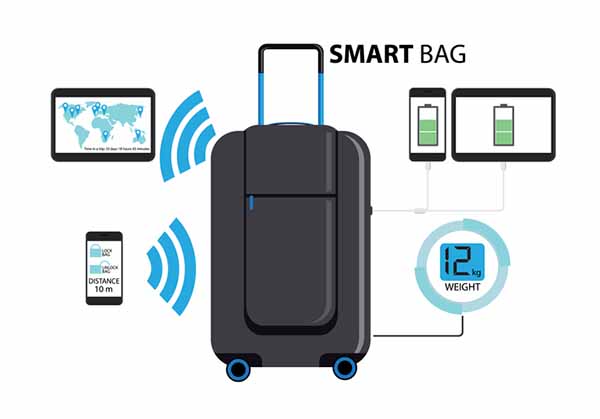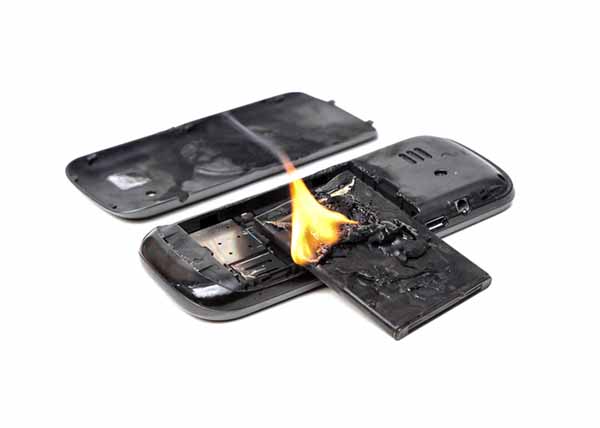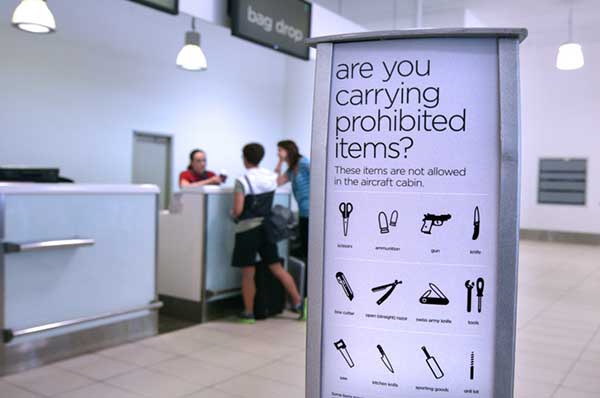Out of a concern for safety, airlines have begun adding a new class of item to their list of restricted and prohibited items. Smart bags, which have been growing steadily in popularity, are being slapped with new policies determining whether or not they can continue to be allowed onboard. Curious about why this change is occurring and what flight attendants can expect from it? Here’s what students need to know.
The Rise of Smart Bags
Smart bags are a recent addition to the travel world. As early as 2014, startups had begun looking into the possibility of fusing 21st-century technology with the age-old travel bag. The original intent was to offer GPS tracking to ensure that no luggage would be lost, but the idea quickly took off and smart bags began offering an array of other features like USB charging, remote locking, and more. Some even have the ability to weigh themselves to ensure that travellers stay compliant with weight restrictions.

As students enrolled in a flight attendant preparatory course might expect, these handy features have made smart bags popular among travellers. As a result, these bags have become more and more common on flights all over the world.
Why Smart Bags Are Being Banned
Unfortunately, the convenience of smart bags does come at a bit of a cost. To power all these nifty features, smart bags come with lithium-ion batteries. While these batteries are typically safe, it sometimes happens that they overheat and burst, which can cause a fire. Needless to say, the potential for spontaneous combustion poses an important safety concern on planes. Already, other products with lithium-ion batteries, like a particular model of smartphone released by Samsung in 2016, have been banned or restricted from planes because they were at higher than normal risk of battery failure.

For this reason, several airlines are now restricting smart bags or banning them altogether. Others allow them on, so long as the battery is removed and stored with carry-on luggage. Unfortunately, some smart bags don’t easily allow their batteries to come out, meaning some owners have been left struggling to use screwdrivers to MacGyver a solution in time to board their flight. Other airlines allow passengers to bring smart bags onboard as a carry-on so long as the battery is turned off, and some still allow smart bags to be brought onboard without any special requirements.
What Does This Mean for Students in Flight Attendant Programs?
There have been a number of developments by parties hoping to address the potential for risk posed by smart bags. So far, Air Canada, British Airways, Delta, and several other airlines have imposed restrictions or bans on smart bags. Some companies that make smart bags are also looking to adapt their products so that batteries can be removed easily. This would make it easier for smart bags to continue to be allowed on planes as a restricted item, with batteries carried separately with carry-on items.
For students in flight attendant programs, these changes might mean that onboard safety procedures could be updated, or simply that they’ll see many more smart suitcases as this trend takes off. While time will tell just how this new change plays out, one thing is certain: This is a career path that is always filled with change!
Are you searching for something that’s anything but your typical 9-5?
For those looking to launch their flight attendant careers in Vancouver, look no further than Eton College!



